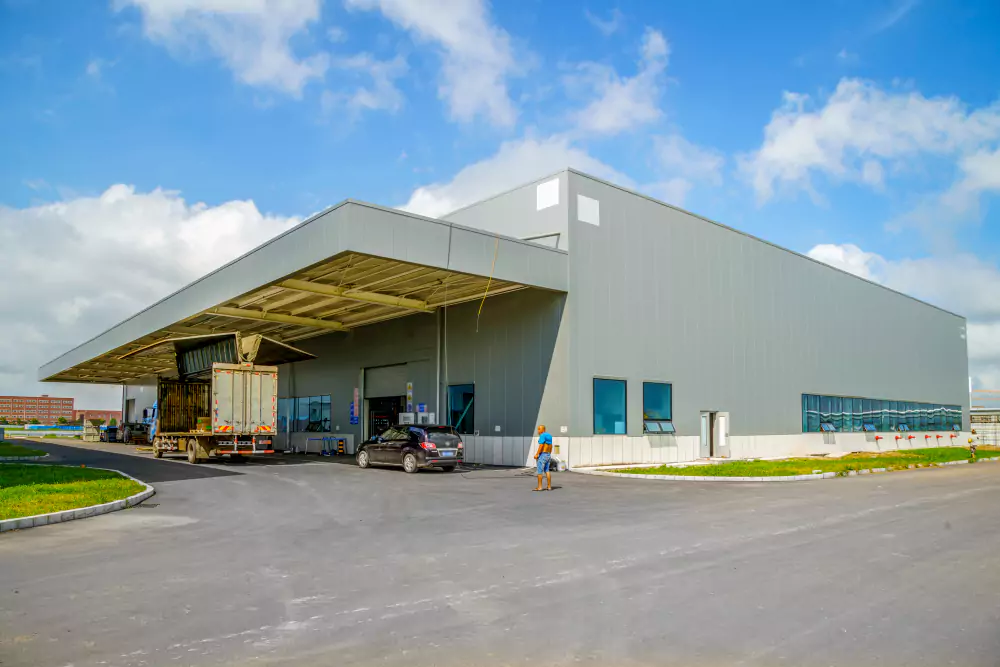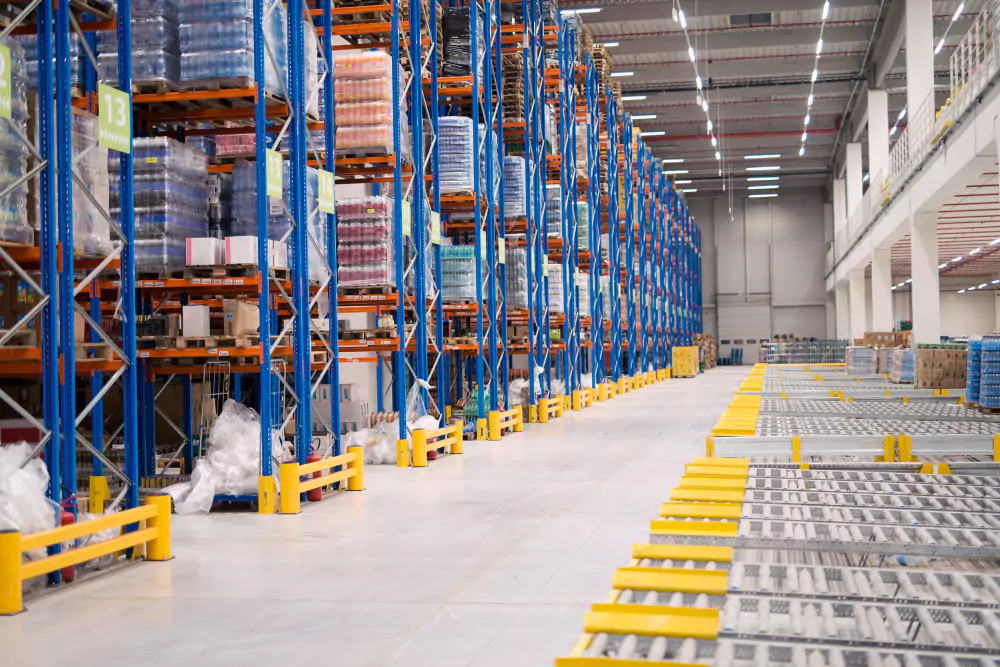Stacket 3PL Prep and Fulfillment Warehouses
18 Mar

Warehousing has evolved significantly with modern warehouses now integrating advanced technologies to optimize efficiency, accuracy, and storage solutions. From automation to artificial intelligence, these warehousing features are revolutionizing the logistics industry. But what exactly are these innovations, and how are they shaping the future of warehousing? Let’s explore the game-changing technologies redefining warehouse management.
- What Are the Essential Features of a Modern Warehouse?
- How Is Technology Shaping the Future of Warehousing?
- What Game-Changing Technologies Are Transforming Warehouses?
- How Do Modern Warehouses Optimize Space and Storage?
- Why Is Warehouse Management More Important Than Ever?
- What Does the Future Hold for Warehousing?
- Conclusion
What Are the Essential Features of a Modern Warehouse?
The foundation of modern warehouses lies in their ability to streamline operations efficiently. Key warehouse features include advanced storage solutions, real-time tracking systems, and automated processes. A well-designed warehouse ensures faster fulfillment, accurate inventory management, and seamless coordination between different supply chain components.
A warehouse management system (WMS) is one of the most crucial elements, helping businesses track stock levels, optimize picking routes, and reduce human errors. Additionally, high-density warehouse storage solutions such as vertical racking, robotic picking systems, and climate-controlled storage enhance efficiency while maximizing space.
How Is Technology Shaping the Future of Warehousing?
The future of warehousing is driven by automation, artificial intelligence, and IoT-based solutions. These innovations not only increase efficiency but also reduce operational costs and errors.
For instance, warehouse automation has minimized the reliance on manual labor. Robotics, AI-driven forecasting, and automated sorting systems help businesses meet growing customer demands with precision. Moreover, cloud-based warehouse management and operations enable real-time data access, making it easier to make informed decisions and optimize processes.
What Game-Changing Technologies Are Transforming Warehouses?
The rapid development of smart technology is introducing game-changing advancements in warehouse management. Some of the most impactful technologies include:
- Automated Guided Vehicles (AGVs) – These self-navigating robots transport goods within warehouses, reducing the need for human labor.
- AI-Powered Inventory Management – Predictive analytics help businesses anticipate demand and prevent stock shortages or overstocking.
- IoT-Connected Sensors – Smart sensors provide real-time tracking of inventory, temperature-sensitive goods, and warehouse conditions.
- Blockchain in Warehousing – Enhances transparency and security in supply chain operations, reducing fraud and discrepancies.
How Do Modern Warehouses Optimize Space and Storage?
Space utilization is a critical factor in efficient warehouse management. Warehouse storage solutions such as mezzanine floors, high-bay shelving, and mobile racking systems are transforming how businesses store inventory.
For example, warehouse pallet storage racks allow for vertical stacking, maximizing floor space while keeping goods easily accessible. Additionally, dynamic slotting techniques ensure that high-demand items are stored in easily reachable locations, reducing retrieval time.

Why Is Warehouse Management More Important Than Ever?
Efficient warehouse management and operations are essential for businesses looking to scale and improve delivery speed. In a fast-paced e-commerce landscape, timely order fulfillment is crucial for customer satisfaction.
Warehouse management systems provide real-time updates on stock levels, automate order processing, and enhance visibility across multiple locations. Businesses leveraging these tools experience reduced losses, faster deliveries, and improved workflow optimization.
What Does the Future Hold for Warehousing?
As supply chain demands continue to evolve, the future of warehousing will focus on sustainability, efficiency, and seamless integration of emerging technologies. Warehouses will likely incorporate:
- Green energy solutions such as solar-powered operations and energy-efficient lighting.
- Fully autonomous warehouses operated by AI-driven robots and machine learning algorithms.
- Advanced cybersecurity measures to protect warehouse data and inventory records.
Conclusion
The transformation of modern warehouses is driven by game-changing technologies and innovative warehouse management strategies. From warehouse automation to smart warehouse storage solutions, businesses that adapt to these advancements will stay ahead in an increasingly competitive industry. As the future of warehousing unfolds, embracing these innovations will be the key to operational excellence.
